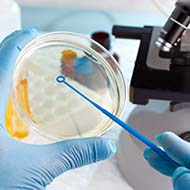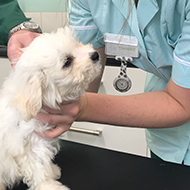Cat bacteria treats skin infection, study finds
The findings may have positive repercussions in new bacteriotherapies for humans and animals.
Researchers discovered a strand of cat bacteria that is resistant to eczema.
Healthy cats have a bacteria that produces antibiotics against severe skin infections, a study from the University of California San Diego School of Medicine has found.
Published in eLife, the study, entitled 'Antimicrobials from a feline commensal bacterium inhibit skin infection by drug-resistant S. pseudintermedius' founds that bacteria on healthy cats could be used to treat a skin infection on mice.
The infection, a bacterium known as Staphylococcus pseudintermedius (MRSP) is commonly found on domesticated animals, and becomes infectious when the animals are sick or injured.
It is an emerging pathogen, can cause sever atopic dermatitis, and can jump between species.
Researchers screened a library of bacteria which normally live on dogs and cats and grew them in the presence of MRSP, from this identifying a strain of cat bacteria called Staphylococcus felis (S. felis) that was particularly strong at inhibiting MRSP growth.
It was discovered that this particular strain of S. felis produces multiple antibiotics naturally, which kill MRSP by disrupting its cell wall and increasing the production of toxic free radicals.
As bacteria can develop resistance to a single antibiotic very easily, S. felis has four genes which code for four distinct antimicrobial peptides, each of which can kill MRSP on their own, but together, make it particularly difficult for the bacteria to fight back.
After establishing how S. felis kills the MRSP, the researchers tested it out on mice who had been exposed to the most common form of the pathogen. S. felis bacteria was then added to the same site, and the skin showed a reduction in scaling and redness, and there were fewer viable MRSP bacteria left on the skin of those who has been treated with S. felis.
The study is part of a line of work by Professor Richard L. Gallo and his team, working to develop bacteriotherapies for inflammatory skin diseases and skin cancers, and has potential to lead to new bacteriotherapies for both humans and pets.








